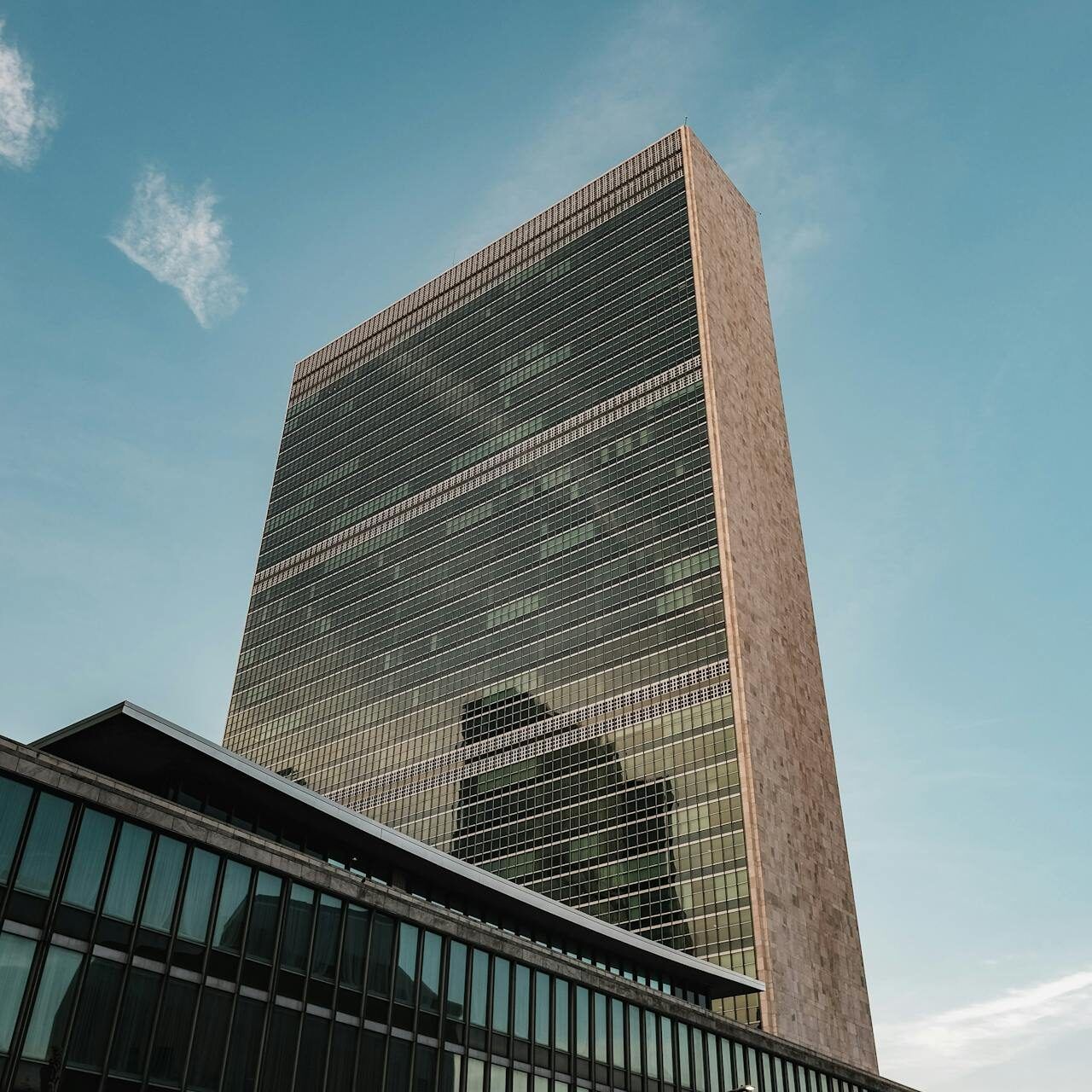Preparing for the Worst Case for UN Assessed Funding Under Trump 2.0

The flurry of executive actions by President Trump since assuming office last month has upended the financing landscape of the United Nations (UN) system. The draconian cuts to voluntary contributions were expected, even if the ham-fisted way these cuts were executed may not have been. The damage, however, will not be limited to voluntary (discretionary) contributions; cuts to assessed (mandatory) contributions are also on the horizon. The executive order on withdrawing and ending from certain UN organizations issued on February 4 not only directs the US Secretary of State to withhold some funds from the UN regular budget, but it also calls for a review of “all international governmental organizations of which the United States is a member and provides any type of funding or other support” to be completed within 180 days. On top of this, there have been renewed calls for “defunding the United Nations” from thought leaders in MAGA circles and clear opposition from Congressional Republicans for expanding the use of UN assessed contributions to cover additional activities, including the financing of the African Union Support and Stabilization Mission in Somalia.
Will the United States withdraw from the UN? I continue to believe that this is not likely, for various reasons. For one, when Trump nominated Elise Stefanik for Permanent Representative to the United Nations—his first nomination after being elected—he accorded the position Cabinet rank. Furthermore, prominent Republicans continue to support the World Food Programme (WFP) and the UN Children’s Fund (UNICEF), which are both subsidiary organs of the UN traditionally led by US nationals. Moreover, the United States enjoys permanent membership in the Security Council, which allows it to extend its influence over matters of international peace and security. That said, there is a real likelihood that the United States could bring the work of the UN to a halt even if it remains in the UN by wielding its veto in the Security Council and withholding its assessed contributions.
The cash flow challenges currently experienced by the UN are primarily (but not exclusively) driven by the habitual late payment of contributions by the United States, the largest financial contributor. The United States is currently assessed 22 percent for the regular budget and 26.1584 percent of peacekeeping budgets. If the Trump administration decides to halt funding to the UN entirely, this will only exacerbate the liquidity crisis. The UN is handicapped in its ability to manage liquidity because the UN financial regulations assume that countries pay assessed contributions in full, but late payment has been a reality at the UN from the earliest days of the organization. When member states fail to pay their assessments on time, many budgeted activities cannot be completed or, in some cases, initiated. In recent years, the General Assembly has increased the liquidity available to the UN through measures such as expanding the working capital fund and authorizing the use of the Peacekeeping Reserve Fund, as well as allowing the management of the cash across the special accounts for peacekeeping operations in a single pool. Additional measures to increase liquidity have just been proposed by the secretary-general in a report on improving the financial situation of the UN, which will be considered by the Fifth Committee of the General Assembly in March, but these measures would not be sufficient to manage the magnitude of the likely cash shortfall from a complete halt in US funding.
The only penalty for late payment of assessed contributions comes in the form of Article 19 of the Charter, which revokes the voting privileges in the General Assembly—but not other bodies, such as the Security Council—of any member state whose arrears exceed the amount it was assessed for the previous two years. And yet, the possibility of losing the vote in the General Assembly may not be sufficient to dissuade the Trump administration from withholding its assessed contributions. After all, the Trump administration likely considers the Security Council a more suitable platform from which to advance its emerging “might makes right” approach to foreign policy. If the US stops paying its assessed contributions, it will cross the Article 19 threshold in 2026 and most likely lose its vote in 2027.
In advance of a possible freeze on US assessed contributions, the General Assembly should take pre-emptive steps to prepare for the worst-case scenario. However, the types of measures that the Secretariat or the General Assembly usually consider have real issues that are not always appreciated. Budget cuts are often the go-to response, but—regardless of how much budgets are reduced—there will still be unfilled gaps from unpaid assessments. Voluntary funding is also not a solution to late or non-payment of assessed contributions, as the UN cannot use voluntary contributions to finance activities budgeted for assessed contributions. Moreover, greater reliance on voluntary contributions for programmatic activities (whether budgeted or extrabudgetary) only increases the vulnerability of the UN to the volatility of politics in traditional donor governments. And to turn to private sector as a source of funding is to open the door to corporate capture.
Several other ideas have been floated on how to improve the financial situation, but none are workable. The first is to reduce the Article 19 threshold to one year of assessments (as opposed to two) to incentivize member states in arrears to make the payments necessary to retain their voting privileges in the General Assembly. But this would require an amendment to the Charter, and everyone who follows Security Council reform knows how unlikely this would be. Another suggestion is for the General Assembly to adjust the scales of assessments to avoid overreliance upon the largest financial contributor (i.e., the United States). But this does not account either the zero-sum nature of scales negotiations—since for the United States to pay less requires all other member states to pay more—and the fact that the scales of assessments are agreed by consensus.
So, what is possible? One approach worth considering is for the General Assembly to consider authorizing the Secretary-General to issue a supplementary assessment to member states not in arrears under Article 19 to cover the amounts owed by those that are in arrears under Article 19. This recognizes the reality that member states in arrears under Article 19 are unlikely to fully meet their financial obligations in any given financial year but ensures that any payments subsequently made by countries in arrears under Article 19 would go to pay back the amounts contributed by other member states to cover for their shortfalls. Such an approach would help mitigate the impact of significant US withholdings on assessed budgets without rewarding bad behavior, all while avoiding either unnecessarily messy scales negotiations or a futile Charter amendment push. A reduction in the overall level of the budget can make these supplementary assessments more palatable to other member states so that they do not have to pay more in real terms.
The United States government has, in the past, argued against paying arrears from prior financial periods because “in principle, the money is no longer needed for those activities” and that payment of arrears could lead to a financial windfall that may not be efficiently or effectively spent. The proposed approach addresses this concern by providing a clearer conceptual basis for the repayment of arrears. After all, payments made by the United States while it is in arrears under Article 19 would not be going to the Secretariat to fund programmatic activities but would go to pay back other member states who helped cover for a delinquent United States.
Admittedly, this proposal does not solve the problem—the liquidity crisis can only be overcome if all member states pay in full and on time—but it would help mitigate the impact of a potential prolonged suspension of assessed contributions from the United States. To better help the Secretariat manage cash up to that threshold, member states should, in the interim, approve the liquidity measures proposed by the secretary-general and to allow the UN greater flexibility to draw upon other potential sources of liquidity (on a reimbursement basis) to meet immediate cash flow requirements.
But an effective response to this dire moment also requires leadership from the secretary-general. There is a considerable pool of creativity to be found in the dedicated personnel of the organization, but that creativity needs to be encouraged from the top, including in undertaking the contingency planning and red-teaming necessary to prepare to likely disruption to UN activities. In the fullness of time, the secretary-general is unlikely to be remembered by future generations for Our Common Agenda or the Pact for the Future; whether and how he is remembered will depend on if he can rise to the challenge of “the most impossible job” (in the words of Trygve Lie, the inaugural office-holder) and effectively steer the UN through the brave new world portended by the return of Trump to the White House.
Stay Connected
Subscribe to our newsletter and receive regular updates on our latest events, analysis, and resources.
"*" indicates required fields
